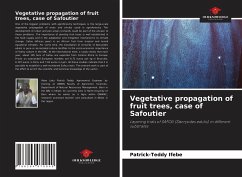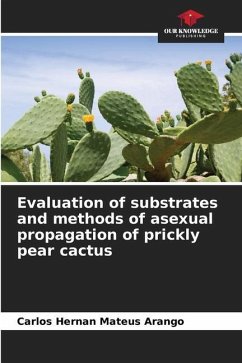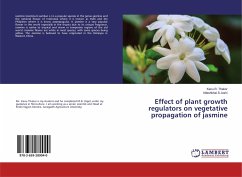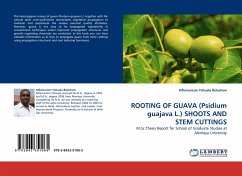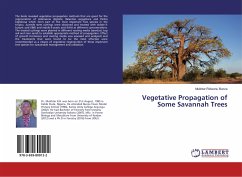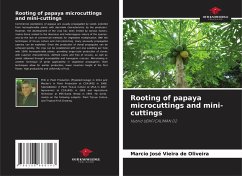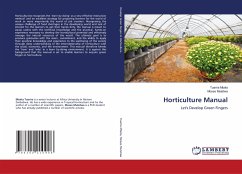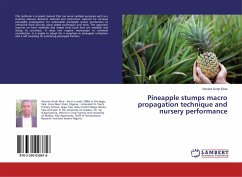
Vegetative propagation
Effect of Rooting Hormones on Asexual Propagation of Alnus Nepalensis D. Don in Two Environments
Versandkostenfrei!
Versandfertig in 6-10 Tagen
40,99 €
inkl. MwSt.

PAYBACK Punkte
20 °P sammeln!
The asexual propagation of Alnus nepalensis D. Don limited in Ecuador and the low germination percentage by the sexual way (5-6%) have caused that the species is not used to its full potential. The objective of the research was to evaluate the interaction of different types of rooting hormones in the asexual propagation of the species in two types of environments in the Experimental Farm "Yuyucocha" which were nursery and greenhouse, a split-plot design with unrestricted randomized arrangement was applied; The environments represent the largest plot and the hormones (wheat infusion, coffee, wi...
The asexual propagation of Alnus nepalensis D. Don limited in Ecuador and the low germination percentage by the sexual way (5-6%) have caused that the species is not used to its full potential. The objective of the research was to evaluate the interaction of different types of rooting hormones in the asexual propagation of the species in two types of environments in the Experimental Farm "Yuyucocha" which were nursery and greenhouse, a split-plot design with unrestricted randomized arrangement was applied; The environments represent the largest plot and the hormones (wheat infusion, coffee, willow, Hormonagro #1 and control) form the subplots. 600 aerial sprout cuttings were used, product of previous pruning, from the medium and high canopy of 56 trees. The variables evaluated were: number of sprouts, rooting, phytosanitary status, cuttings with sprouts and roots, and survival. At 30 days, the highest yields were T2 (willow) with 26.66% in the greenhouse and T5 (Hormonagro #1) with 43.33% in the nursery. Production costs varied between $1.51 and $1.66 in the greenhouse and between $1.64 and $1.80 in the nursery. The species under study presents difficulties in asexual propagation.



